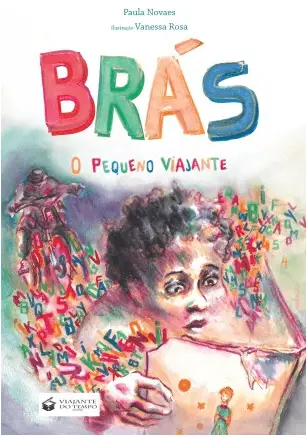Portuguese activity, aimed at 8th grade students, proposes the study of intensity adverb, through text about the book Brás - the little traveler, written by Paula Novaes.
This Portuguese language activity is available for download in an editable Word template, ready to print in PDF and also the completed activity.
Download this activity from:
SCHOOL: DATE:
PROF: CLASS:
NAME:
Read:
Brás was a boy who lived in a favela and struggled hard to work and help his grandmother, leaving little time to play and study. Despite the difficult life, he knew well how to unleash his imagination. Among the clothes that his grandmother washed to earn some money, Brás created a circus where children could do anything they wanted, such as playing, eating ice cream or eating popcorn. The name? Easy: the “Anything Can” circus!
One fine day, the boy found a book in a garbage bag and his imagination went even further. Brás got his own cookie-shaped planet and traveled to many other places. In the middle of the adventure, he even fell in love with the most precious thing that exists: water.
Want to know how this story ends? so check out the book Brazil, the little traveler, who was inspired by the work The little Prince, by Antoine de Saint-Exupéry.

Available in: http://chc.org.br/bras-e-o-livro-que-veio-do-lixo/. Accessed on: 08/06/16.
Question 1 - The purpose of the text is:
a) publicize the book “Brás”.
b) show the importance of caring for the planet.
c) highlight the need to let go of the imagination.
d) narrate the adventures of Brás.
Question 2 - Highlight the adverbs that indicate intensity in the following excerpts:
a) “Brás was a boy who lived in a favela and tried very hard to work […]”.
b) "In the middle of the adventure, he even fell in love with the most precious thing that exists: water."
Question 3 - “Then, check out the book Brás […]”, the highlighted term indicates one:
a) opposition
b) consequence
c) explanation
exe
d) conclusion
Question 4 – In “[…] and help your grandmother, leaving little time to play and study.”, the comma introduces a verb in the form of:
( ) participle
( ) gerund
( ) infinitive
By Denyse Lage Fonseca – Graduated in Languages and specialist in distance education.
At answers are in the link above the header.
 report this ad
report this ad